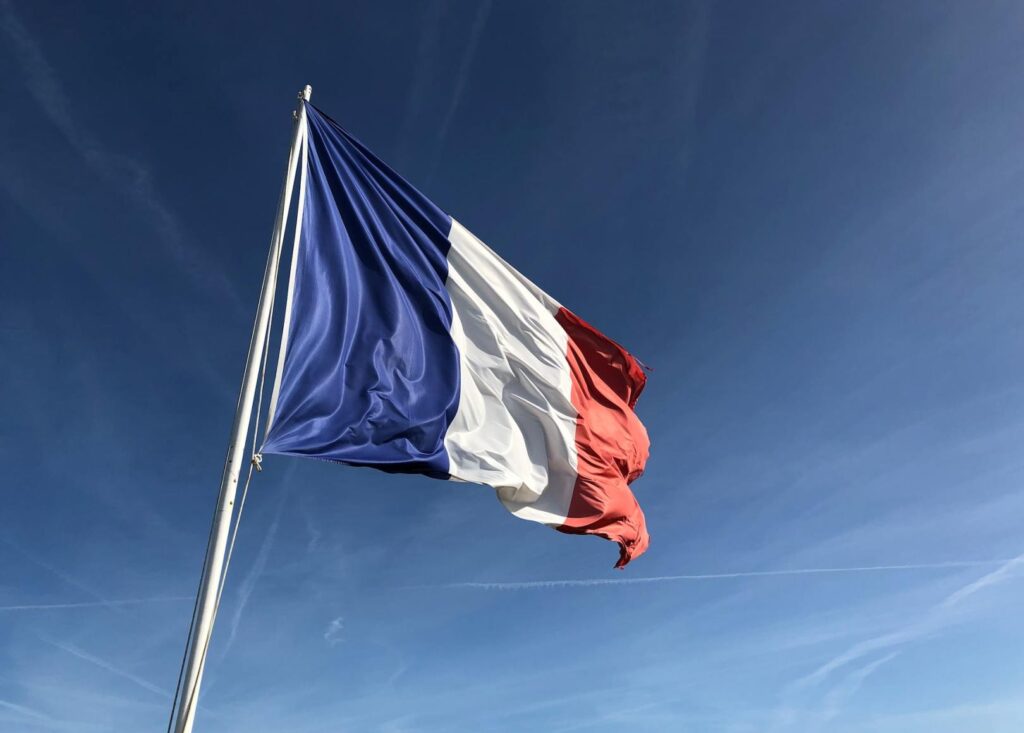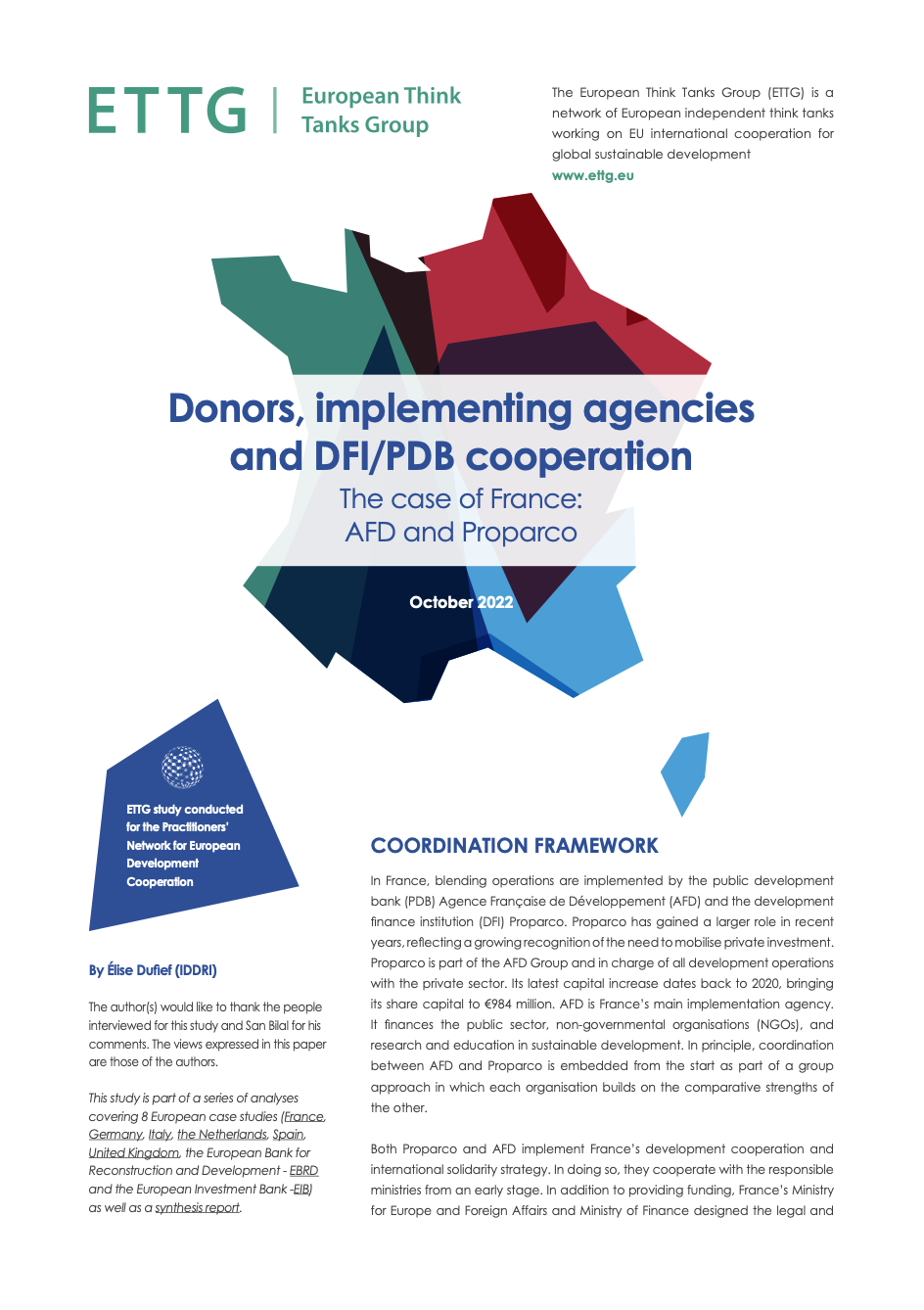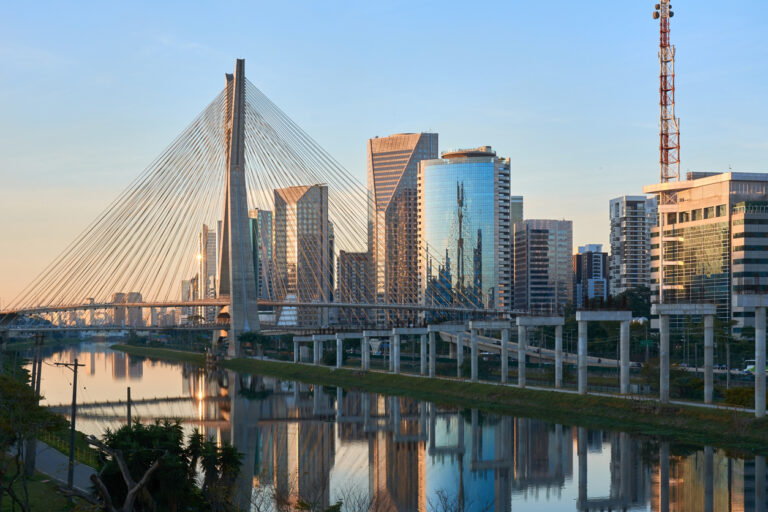
In France, blending operations are implemented by the public development bank (PDB) Agence Française de Développement (AFD) and the development finance institution (DFI) Proparco. Proparco has gained a larger role in recent years, reflecting a growing recognition of the need to mobilise private investment. Proparco is part of the AFD Group and in charge of all development operations with the private sector. Its latest capital increase dates back to 2020, bringing its share capital to €984 million. AFD is France’s main implementation agency. It finances the public sector, non-governmental organisations (NGOs), and research and education in sustainable development. In principle, coordination between AFD and Proparco is embedded from the start as part of a group approach in which each organisation builds on the comparative strengths of the other.
Both Proparco and AFD implement France’s development cooperation and international solidarity strategy. In doing so, they cooperate with the responsible ministries from an early stage. In addition to providing funding, France’s Ministry for Europe and Foreign Affairs and Ministry of Finance designed the legal and strategic framework in which Proparco and AFD operate. In August 2021, France adopted a new law on solidarity-based development and the fight against global inequality. Its first article sets out global strategic objectives for development and a mandate shared by all French development actors, including AFD and Proparco. These strategic objectives are further defined in thematic priorities by the Inter-Ministerial Committee for International Cooperation and Development (CICID).
Read the case study here.
Author: Élise Dufief (IDDRI)
The author would like to thank the people interviewed for this study and San Bilal for his comments.
ETTG study conducted for the Practitioners’ Network for European Development Cooperation.
This study is part of a series of analyses covering 8 European case studies (Germany, France, the Netherlands, United Kingdom, Spain, Italy, the European Investment Bank -EIB and the European Bank for Reconstruction Development – EBRD) as well as a synthesis report.
Presentation of the analysis report here.
Photo by Anthony Choren on Unsplash.
The views are those of the authors and not necessarily those of ETTG.




